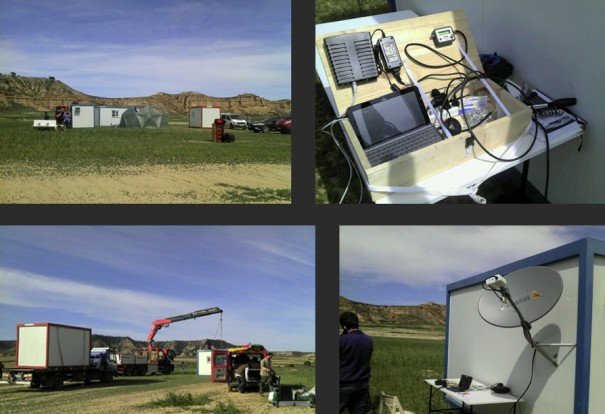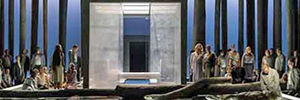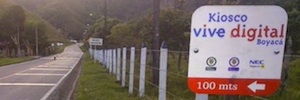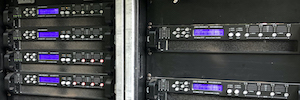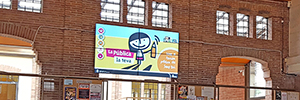Hispasat will facilitate communications at the Mars Spanish Mission
The satellite operator collaborates with the Mars Spanish Mission research project, first Spanish landing simulation mission on Mars.
Hispasat, The Spanish satellite communications operator, will facilitate broadband connections for the Mars Spanish Mission project (MSM), the first Spanish mission to simulate the colonization of Mars, the preliminary phase of which runs from today until the end of the year. 7 in the Sierra de Jubierre, in Los Monegros (Aragon), and that will culminate over the course of 2014 on a mission to be carried out in Utah (United States).
Hispasat will enable the necessary communications between the researchers who will work in the science camp and the Mission Support Centre that has been set up at the European Business and Innovation Centre (CEEI) of Zaragoza; It will also provide the project with the necessary equipment to establish such connections.
The satellite broadband solution provided by Hispasat to the Mars Spanish Mission project is the same one that allows Internet access to be established in any geographical location, even where terrestrial networks do not reach.
Hispasat thus supports a scientific initiative with which it shares principles such as promoting the Spanish aerospace industry and encouraging the participation of students in projects related to the sector.
The Mission
The objectives of this preliminary mission are to analyze the projects involved in the Utah mission, the design and testing of organisational models of the third aerospace sector that are viable in the current socio-economic environment, the development of mission and organisational procedures in which the European Space Agency's PMP and ECSS standards are applied, the definition of resources that will be needed in Utah during the second phase of the Mars Spanish Mission and the suitability of the area chosen in this mission to be used in future simulations.
To achieve these goals, The members of the mission will carry out activities within the cabin (Electrical and Electronic Equipment Testing, Analysis of geological and biological samples and domestic activities of the cabin) and extra-cabin (The Crew, in groups of three, They will travel to the areas of scientific and technological interest around the science camp to test equipment and procedures in the field, such as the collection of geological and biological samples).
The MSM program offers Spanish space and engineering students the possibility of developing new projects and sharing experiences, as well as establishing contact with the industry in the sector, At the same time, young people are interested in space research and made aware of its importance for society as a whole.
The Mars Spanish Mission is promoted by The Mars Society Spain (TMSE) and the Laboratory for Space and Microgravity Experimentation (LEEM), and is carried out in parallel to other missions such as Euro-MARS in Iceland, that will simulate the first landing with humans on Mars, and the Mexo-Hab in Mexico. TMSE has been the driving force behind both projects.
You liked this article?
Subscribe to our RSS feed And you won't miss anything.




